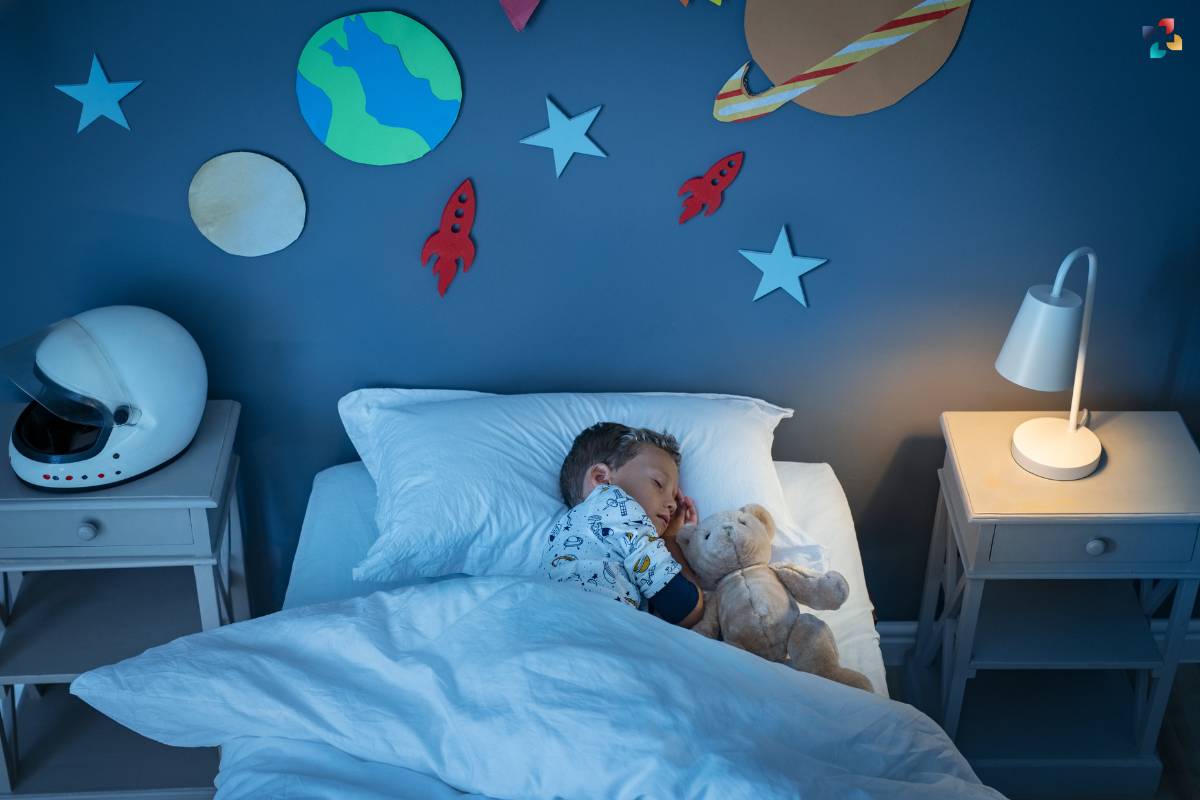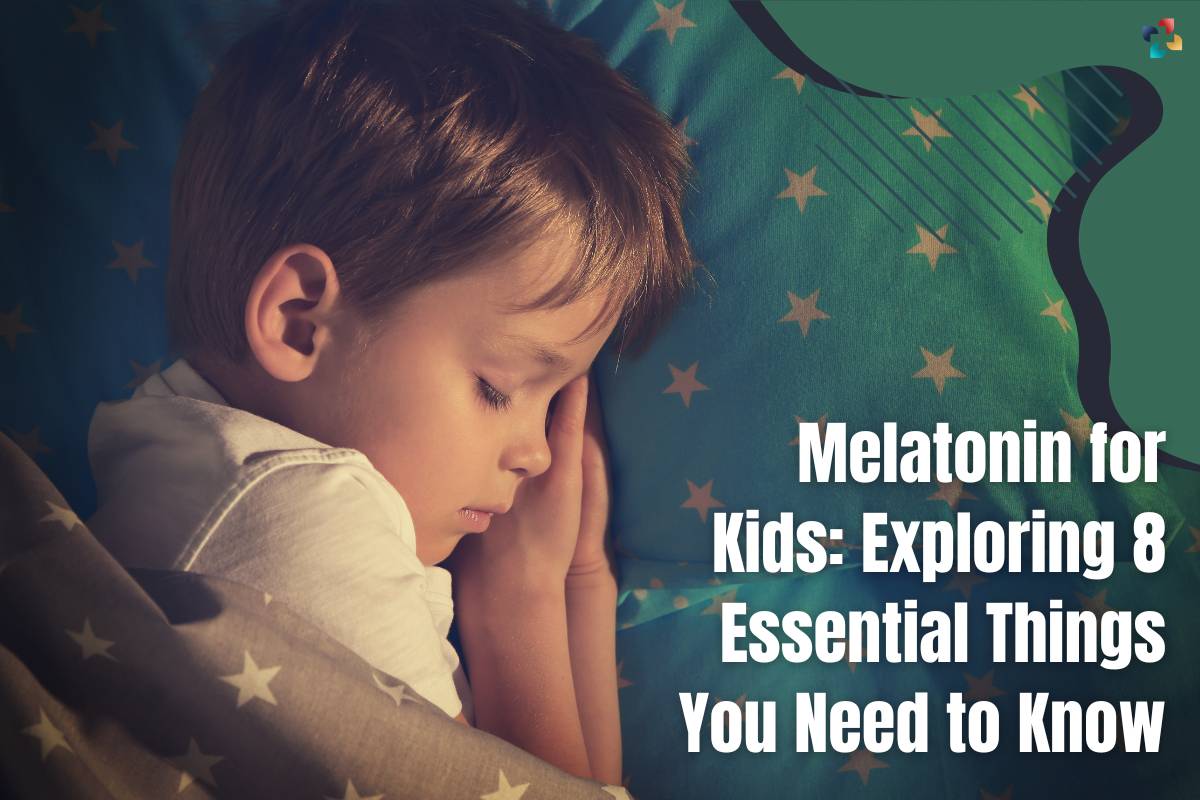Over the last few years, melatonin has gained popularity as a supplement/medicine for some good sleep. This popularity is not just among adults but also among children. Melatonin is a hormone in the body that is naturally produced by the pineal gland generally in response to darkness, which thus regulates the sleep-wake cycle. However, if you are thinking of using melatonin for kids, there are some important factors you need to consider.
In this comprehensive guide, we’ll delve into eight essential things you need to know about melatonin for kids, exploring its uses, potential benefits, and important considerations for parents.
Here are 8 essential things you need to know about melatonin for kids:
1. What is Melatonin?
Melatonin is a hormone that plays a crucial role in regulating the sleep-wake cycle, also known as the circadian rhythm. The pineal gland, a small gland in the brain, produces melatonin in response to darkness, signaling to the body that it’s time to sleep. Melatonin levels typically increase in the evening and decrease in the morning with exposure to light.
In supplement form, melatonin is available over-the-counter and is often used to address sleep-related issues, such as difficulty falling asleep or adjusting to changes in sleep patterns, such as jet lag.
2. Is Melatonin Safe for Kids?
The safety of melatonin for kids is a topic of ongoing research and discussion among healthcare professionals. While melatonin is generally considered safe for short-term use, its long-term effects on children’s developing bodies are not yet fully understood. As a result, it is crucial for parents to consult with healthcare providers before incorporating melatonin into their child’s routine.
It’s important to note that melatonin supplements are not regulated by the Food and Drug Administration (FDA) in the same way as prescription medications. Therefore, the quality and consistency of melatonin products can vary. Parents should choose reputable brands and discuss the appropriate dosage with a healthcare professional.
3. When to Consider Melatonin for Kids?

Melatonin may be considered for kids in certain situations and under the guidance of a healthcare provider. Some scenarios where melatonin might be considered include:
a. Sleep Disorders:
Children with diagnosed sleep disorders, such as insomnia or delayed sleep phase syndrome, may be recommended melatonin by healthcare professionals.
b. Jet Lag or Shift Work:
Melatonin may help regulate sleep-wake cycles when children experience disruptions due to travel across time zones or irregular work schedules.
c. Attention-Deficit/Hyperactivity Disorder (ADHD):
Some children with ADHD may experience sleep difficulties, and melatonin could be recommended to address these challenges.
d. Autism Spectrum Disorder (ASD):
Children with ASD may encounter sleep disturbances, and melatonin might be considered as part of a comprehensive approach to managing sleep issues.
e. Adjusting to a New Schedule:
Melatonin could be considered for short-term use when children need to adjust to a new sleep schedule, such as the start of a school year.
4. Dosage Considerations
Determining the appropriate dosage of melatonin for kids is a critical aspect of its safe use. Dosages can vary based on the child’s age, weight, and the specific sleep-related issue being addressed. It is crucial to consult with a healthcare provider to establish the correct dosage for your child.
In general, lower doses are recommended for children. Starting with the lowest effective dose and adjusting as necessary is a common approach. Melatonin is typically available in various forms, including liquid, chewable tablets, and traditional tablets, allowing for flexibility in administration.
5. Establishing a Bedtime Routine

While melatonin may assist with sleep issues, it is not a replacement for healthy sleep habits and a consistent bedtime routine. Parents should focus on creating a conducive sleep environment and implementing habits that promote natural sleep. Some key components of a bedtime routine include:
a. Consistent Sleep Schedule: Encourage children to go to bed and wake up at the same time every day, even on weekends.
b. Screen Time Limitation: Reduce exposure to screens (phones, tablets, TVs) at least an hour before bedtime, as the blue light emitted can interfere with melatonin production.
c. Relaxation Techniques: Incorporate calming activities before bedtime, such as reading a book, taking a warm bath, or practicing deep breathing exercises.
d. Comfortable Sleep Environment: Ensure the bedroom is dark, quiet, and cool. Comfortable bedding and sleepwear contribute to a conducive sleep environment.
e. Limit Caffeine and Sugar: Avoid giving children caffeinated or sugary drinks close to bedtime, as these can disrupt sleep.
6. Potential Side Effects and Risks
While melatonin is generally considered safe, it can cause side effects in some children. Common side effects may include headaches, dizziness, nausea, or increased bedwetting. Additionally, excessive use of melatonin may disrupt the natural development of the hormone in the body.
It’s crucial to monitor your child for any adverse reactions and consult with a healthcare provider if you have concerns. Parents should also be aware that melatonin can interact with certain medications, so it’s essential to disclose all medications and supplements your child is taking to their healthcare provider.
7. Consultation with Healthcare Professionals

Before giving melatonin to a child, it is imperative to consult with healthcare professionals. A pediatrician or sleep specialist can assess the child’s sleep patterns, address any underlying issues, and determine whether melatonin is an appropriate option. Healthcare providers can provide guidance on dosage, and potential risks, and monitor the child’s response to melatonin use.
Parents should be prepared to discuss their child’s overall health, medical history, and any existing sleep difficulties during the consultation. This information helps healthcare professionals make informed recommendations tailored to the child’s specific needs.
8. Consideration of Underlying Causes
While melatonin may address immediate sleep-related issues, it is essential to consider and address any underlying causes contributing to sleep disturbances in children. Factors such as stress, anxiety, or other medical conditions may impact sleep patterns. Working with healthcare professionals to identify and address these factors is crucial for comprehensive sleep management.
Conclusion
Melatonin for kids can surely be an important and valuable tool to address any kind of sleep-related challenges. However, it needs to be used under the guidance of professionals. Additionally, suppose you understand the potential benefits, the right dosage, and other considerations, and with it also the importance of maintaining healthy sleeping habits. In that case, it will better help you as parents to navigate the complexities of your child’s sleep.
As with any health-related decision, informed and collaborative discussions with healthcare providers remain key to making the best choices for your child’s sleep health.











